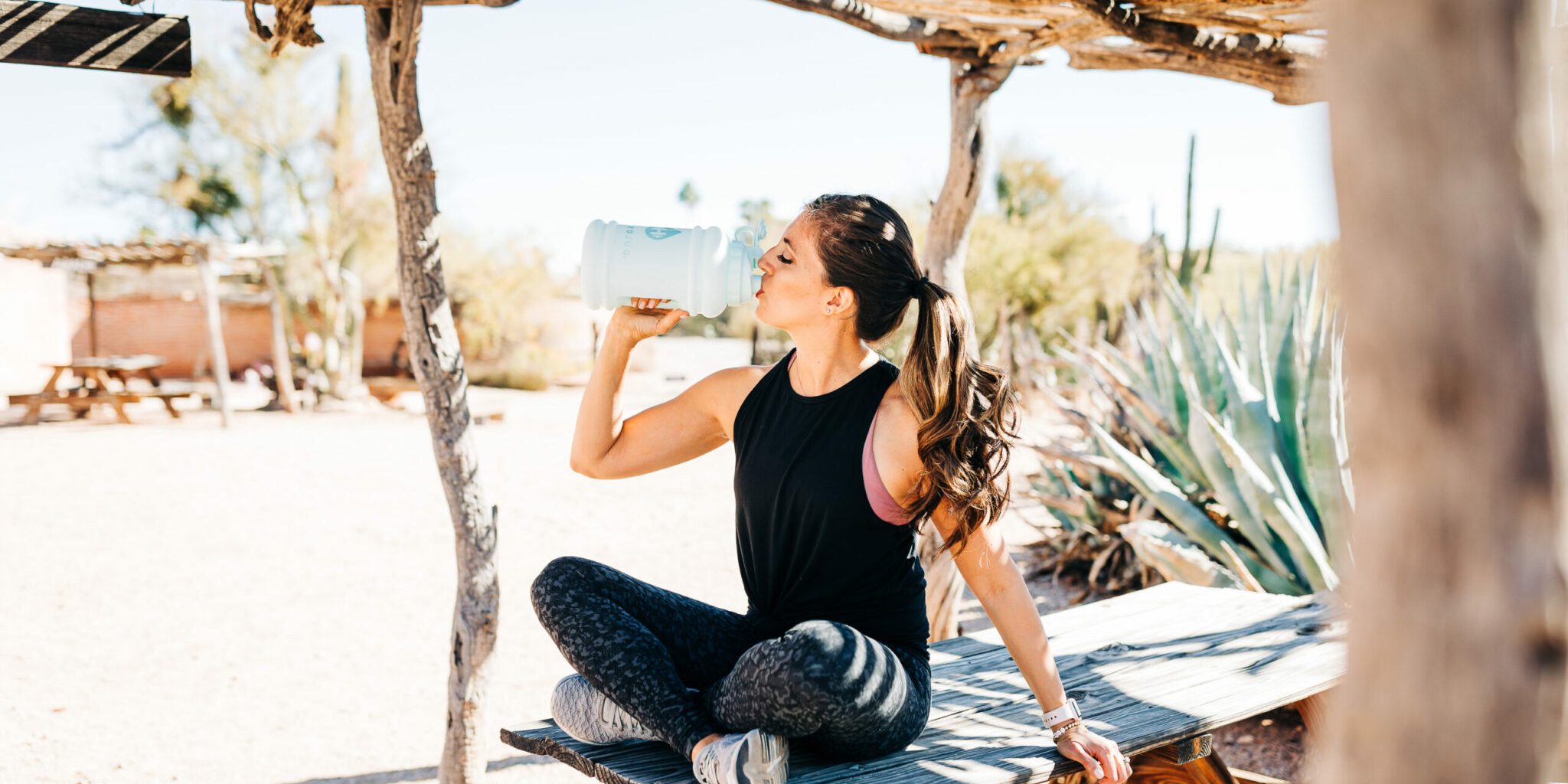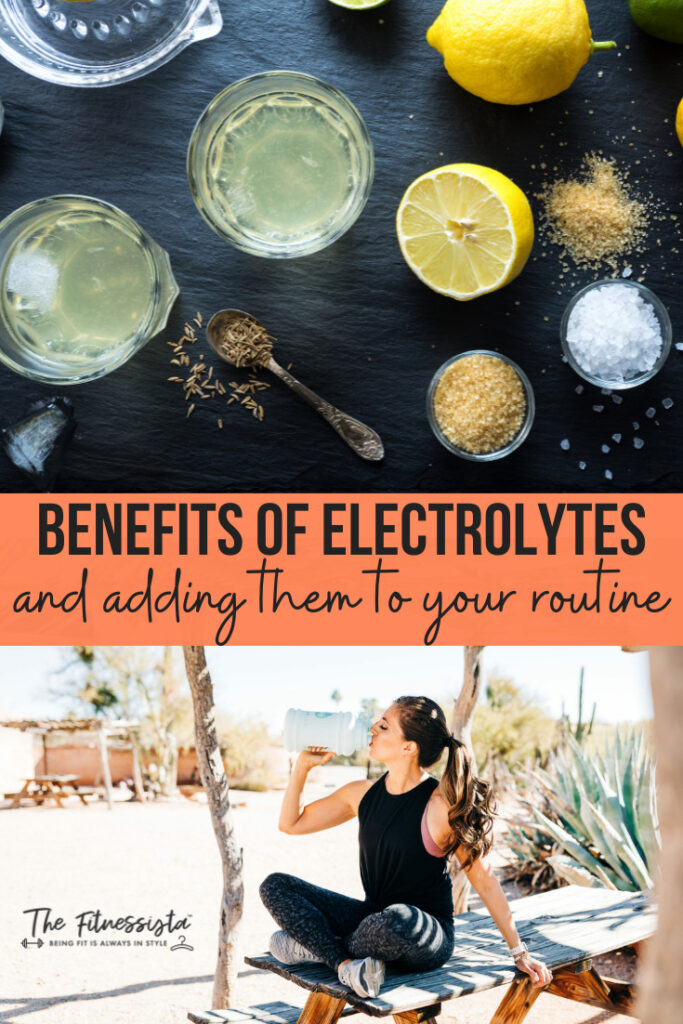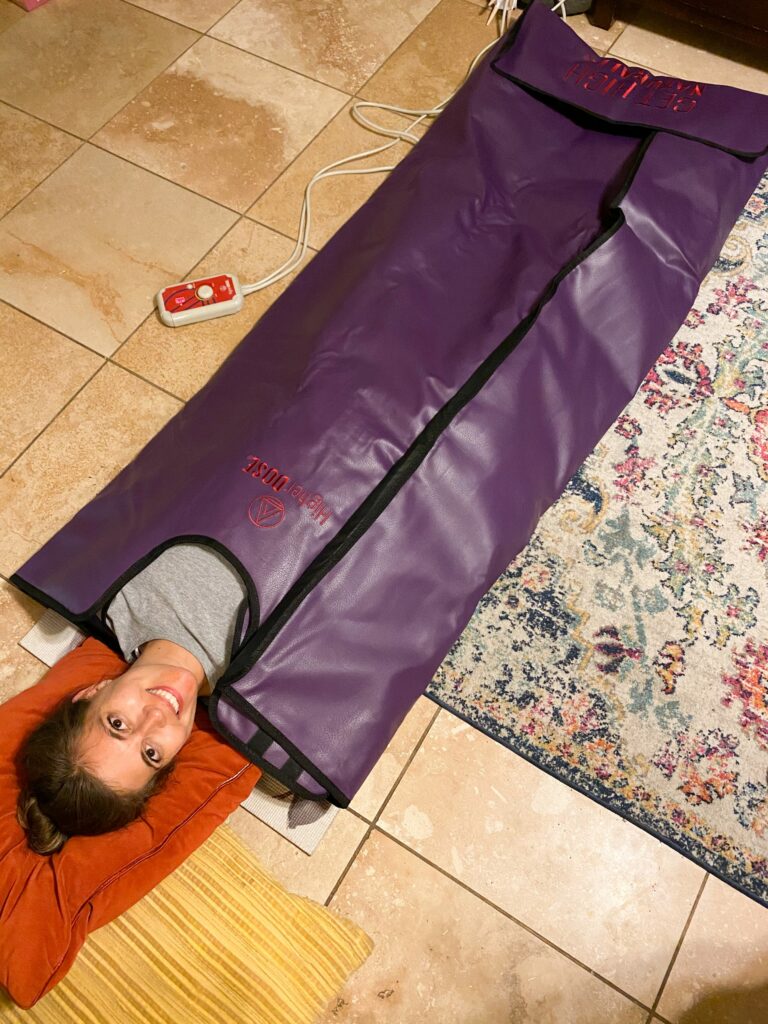What are electrolytes, how do they benefit the body, and how can you incorporate them into your diet? Get the details on adding electrolytes from an expert.
Hi friends! Happy Monday! Hope you had a wonderful weekend. We had dinner at a friend’s house, watched P play soccer, and I got some work stuff taken care of. I also took an amazing nap on Saturday! Bless it. I hope you had a fun and relaxing weekend, too!
For today’s post, I wanted to chat a bit about electrolytes! As someone who works in the fitness industry and has been highly active for years, I only recently started adding them into my routine. Most of the electrolytes I’ve tried in the past contain a lot of sugar and/or artificial colors (like Gatorade or Powerade), so I’d mostly been sticking to good ol’ water and food sources for electrolytes. I started taking electrolyte powder (this one!) in my water bottle each day (I think it was last summer?) and it’s made a huge difference in my performance and energy.
I asked Mia if she’d help with a post all about electrolytes and how to use them in your routine, and here it is! I hope this post is helpful for you and that you enjoy it, too.
What are electrolytes?
Electrolytes are essential for the basic function of life. Sodium, potassium, and chloride are the most significant electrolytes along with magnesium, calcium, phosphate, and bicarbonates.
How do we obtain electrolytes?
Electrolytes are consumed from our food and drink.
Electrolytes must be balanced in order for the body to maintain homeostasis. If we have an imbalance of any one of them, it can disrupt normal bodily functions and can lead to life threatening complications. They regulate fluid balance, help you produce energy, and strengthen your bones. Electrolytes are also essential for muscle contraction and can play a role in muscle fatigue.
Electrolyte imbalances
Most people are deficient in potassium, sodium and magnesium. Ever get a headache after a long sweaty workout or hang out at the beach on a hot summer day only to end up tired and fatigued when you get home? It’s likely due to an electrolyte imbalance. What about having a glass or two of wine or going out on a Friday night only to wake up feeling hungover? That’s right! You’re dehydrated and have an imbalance of electrolytes. Signs of a serious electrolyte imbalance include symptoms like confusion, lethargy, nausea and vomiting, dizziness, irregular heartbeat, fatigue, shortness of breath, abnormal urination patterns, and blood pressure changes.
Generally, the kidneys help to balance electrolytes, like if you consume too much salt, the kidney will get to work on peeing out the excess sodium to restore balance in the body. However, if you’re consuming too LITTLE of any one of these electrolytes, the kidney cant always do their job. An example of this would be eating too low carb or drinking too much plain water.
Unless you have otherwise been advised by your physician, you can benefit from taking electrolytes. Isn’t water enough? Not necessarily. A lot of tap water, city water, and well water can be stripped of minerals or chlorine can be added to these water sources making them less than optimal to drink. Investing in a good reverse osmosis system for your house and purchasing some extra minerals like these, can be beneficial to the body and maintaining homeostasis.
If you sweat regularly via exercise, lifting, sauna, live in a hot climate or are a breastfeeding mama, you can benefit from the addition of supplemental electrolytes. These are our favorite! Start with 1 per day and add an extra any time you’re going to get your sweat on. They’re great for breastfeeding mamas and milk supply.
Which foods contain electrolytes?
We can also obtain electrolytes by consuming a whole foods based diet.
Foods rich in electrolytes include:
White potatoes
Dates
Bananas
Coconut water
Dairy products like cottage cheese, cheese and yogurt
Avocado
Chia seeds
Beets
Pumpkin seeds
Oranges
Leafy greens, like spinach
Olives
Tomatoes
Almonds
Some electrolyte guidelines for workouts:
During long-duration or intense exercise, you can start to deplete electrolytes. Consume one electrolyte drink for exercise lasting more than one hour in intense heat and/or humidity or more than two hours in any condition. Electrolytes during hot yoga was a GAMECHANGER for me. I also make sure to have some extra electrolytes when I use my sauna blanket.
So, tell me, friends: do you take electrolytes? Do you pay attention to electrolyte content in your food?
Have a great day and I’ll see ya soon!
Thank you so much for stopping by the blog today!
xo
Gina


